‘Reviews’ Archives
The Devil’s Trap
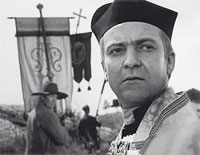
Ďáblova past. Czechoslovakia, 1961, black and white, 87 minsFrantišek Vláčil's second feature was the first of a loose trilogy set in the distant past. All three films (the others being Marketa Lazarová and The Valley of the Bees/Údolí včel, both 1967) take place at a time of fundamental ideological conflict and upheaval - in the case [...]
The Banner of Youth
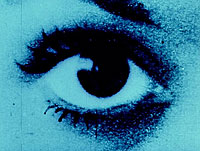
Sztandar Młodych. Poland, 1957, tinted monochrome, 3 mins. A three-minute advertisement for the Polish Communist daily youth newspaper Sztandar Młodych ('Banner of Youth'), this is a more or less exact equivalent of the films that Len Lye made for the GPO Film Unit in Britain twenty years earlier. Lye's A Colour Box (1935) was an [...]
In the Time of King Krakus
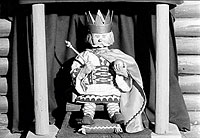
Za króla Krakusa. Poland, 1947, black and white, 14 mins. One of the peculiarities of Polish film hisory is the almost perfect separation between the pre-1939 and post-1945 eras, for reasons that the dates themselves spell out all too clearly. Many Polish filmmakers didn't survive World War II, while others chose not to [...]
Sweet Emma, Dear Böbe
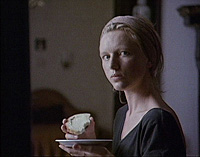
Édes Emma, drága Böbe Hungary, 1992, colour, 81 mins. István Szabó’s return to his native Hungary after over a decade of international acclaim produced a film that’s a stark contrast not only to the glossy, star-studded production values of Mephisto (1981), Colonel Redl (1985), Hanussen (1988) and Meeting Venus (1991), but [...]
Punitive Expedition
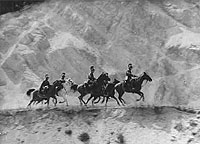
Büntetőexpedició Hungary, 1970, black and white, 34 mins. Is there another national film culture that has devoted so much screen time to the study of horses? Not merely in the sense of lots of them on screen at any one time (there are plenty of American-made Westerns that offer much in that department), but in the way that many [...]
Capriccio
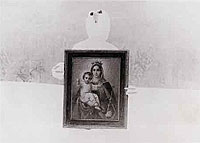
Hungary, 1969, colour, 16 mins. Ostensibly a non-narrative study of various aspects of a rural winter, this short film by one of modern Hungarian cinema's greatest visual poets has all the spellbinding qualities of his better-known feature debut Sindbad (Szindbád, 1971), but here allied to a winning sense of humour that's never quite [...]
Ten Thousand Suns
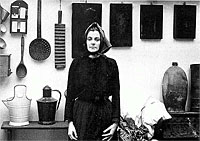
Tízezer nap. Hungary, 1965/67, black and white, 110 mins. One of the most impressive Hungarian directorial debuts, Ten Thousand Suns offers clinching proof that Miklós Jancsó wasn't the only mid-1960s master routinely offering breathtaking widescreen compositions featuring hundreds of men and horses. Shot by Sándor [...]
Cold Days
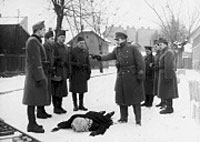
Hideg napok. Hungary, 1966, black and white, 96 mins. It's hard to fault the title: virtually every scene in András Kovács' powerful film is either set outdoors in snow that audibly crunches underfoot, or in a white-walled prison cell where central heating clearly isn't a top priority. The latter is occupied by four [...]
Twenty Hours
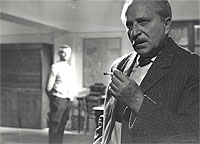
Húsz óra Hungary, 1965, black and white, 110 mins The investigative narrative and flashback structure of Orson Welles’ Citizen Kane has been used more than once to frame a central European political subject. The best-known example is Andrzej Wajda’s Man of Marble (Człowiek z marmuru), written in 1963 but not filmed until 1976, but Zoltán [...]
Swimming-Pools
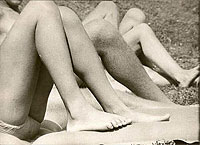
Strand Hungary, 1963, black and white, 14 minsNot so much a documentary as an often near-abstract study of bodies on beaches, much of István Ventilla's film uses extreme telephoto foreshortening to reduce people to constituent parts. Flesh is contrasted with sand, stone and grass, and with other examples: hairy and smooth legs almost seem to be [...]